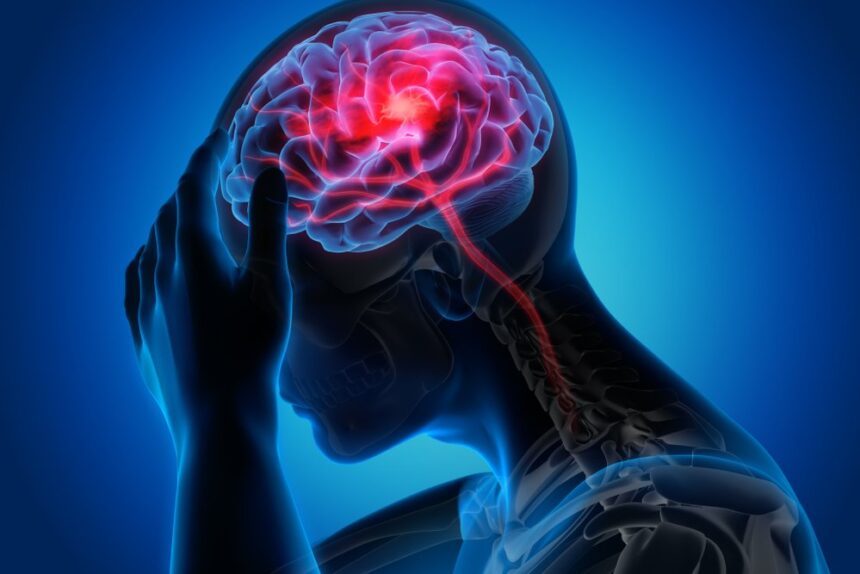The CDC reports that there are around 1.7 million traumatic brain injuries each year. Around 80% of people end up in the emergency room, 16% require hospitalization and 3% result in death.
These statistics sound horrifying, but many people want to know what impact these injuries have on their brain. You need to be aware of the potential issues if you are trying to recover from a car accident.
Getting involved in a car accident can damage many different parts of the body. A head injury is probably the most feared of these injuries and is often the most severe. People naturally worry about brain damage after having a blow to the head.
Why Head Injuries Are Common in Car Accidents
According to Hipskind & McAninch, LLC, rear-end accidents are one of the most common types of auto collisions. When a car hits you from behind or when you rear-end another car, Your head is knocked back and forth very quickly. Your head may hit the windshield, side window, airbag, or steering wheel.
Head injuries are common in motorcycle accidents. Bikers who do not wear helmets often do not survive because the impact is so great when they hit the ground or any other hard surface. Even if a biker is wearing a helmet, they can sustain a head injury.
Because of Newton’s Third Law of Motion, the faster an object is traveling, the greater the impact will be. Car accidents often take place at high speeds, especially on the highway.
What Happens When You Suffer a Head Injury?
Traumatic brain injury occurs when a person suffers a severe blow to the head. When a person’s head is jolted back and forth, it can cause tears to the blood vessels and bruising of the brain tissue.
The temporal lobe is the most common area of the brain to be damaged. Areas of the brain that are not symmetrical may be damaged more severely. When the skull is not cracked, it is called a closed head injury.
Symptoms of Frontal Lobe Injuries
There are several different signs that you may have a frontal lobe injury. If you have been in an accident and you experience any of the following symptoms, you should see a doctor to learn more about the risk of a brain injury:
- Weakness on one side of the face or body
- Mental confusion such as the inability to organize tasks or make ordinary judgments
- Falling over
- Sense of taste is impaired
- Depression
- Inability to control emotions
When a doctor wants to find out if you have a closed head injury or if they want to know the location or severity of the head injury, they will often perform an MRI or CAT scan.
What is a CAT scan?
A CAT scan is a special kind of x-ray that uses tomography. A computer guides the motion of the detectors, and once the scan is done, the computer will process the data and create an image.
The procedure is fast and pain-free. You lie on a table that moves you through a scanner. The doctor will use the results to make a treatment plan for you.
What is an MRI?
An MRI uses computer-generated radio waves and a magnetic image to produce images of tissues and organs in your body. The MRI machine works by temporarily reconfiguring water molecules in your body. The radio waves make signals that create images. Those images are divided into different sections.
There is a specially designed type of MRI for the brain. A doctor will be able to see if blood is flowing to certain parts of your brain when they use this kind of scanner. They will be able to tell which parts of your brain are functioning properly based on where the blood is flowing.
Open Head Injuries
Car accidents can result in open head injuries. In some cases, an open head injury may be treated by applying gauze to the wound until help arrives. You must carefully observe a person with an open head injury and administer CPR if they are not conscious. They will need intensive care until surgery can be performed.
A person who has had this kind of injury may need to be put on coma-inducing drugs because people who are in comas do not need to get as much oxygen as they normally would. They may also receive diuretics to decrease pressure on the brain.
Filing an Insurance Claim
Head injuries are one of the most expensive problems that can result from an accident. A person who has had a brain trauma may need multiple surgeries and expensive medication. In severe cases, they may need treatment for the rest of their life.
If another person caused your accident, you should file a claim against their insurance company. The insurance company is unlikely to want to pay you all the money to which you are entitled, so you will need an experienced accident attorney to help you get the money you require to get healthy.
Look for an attorney who practices personal injury law and has dealt with cases like yours before. An attorney will know how to negotiate with insurance companies to get you the money you need to move on with your life.

